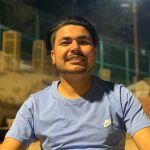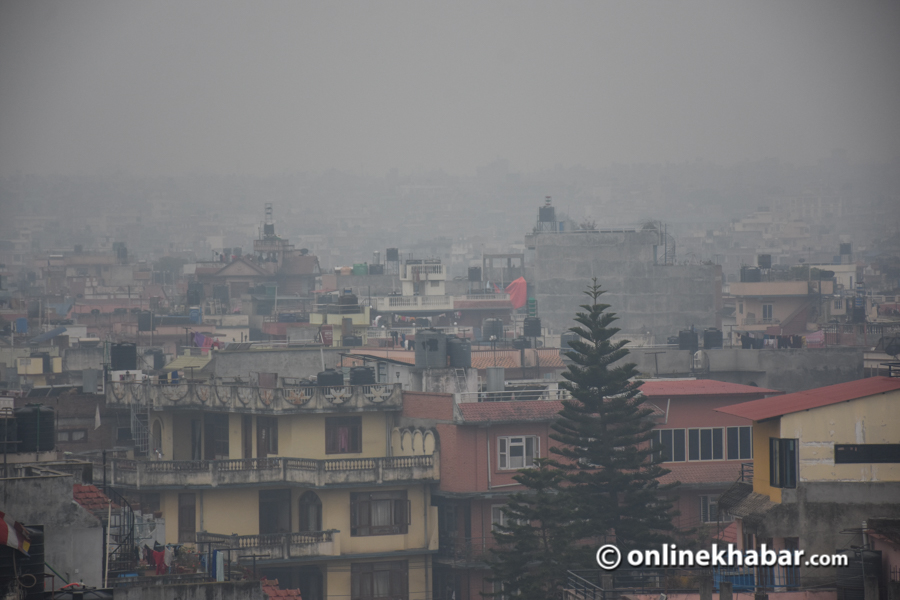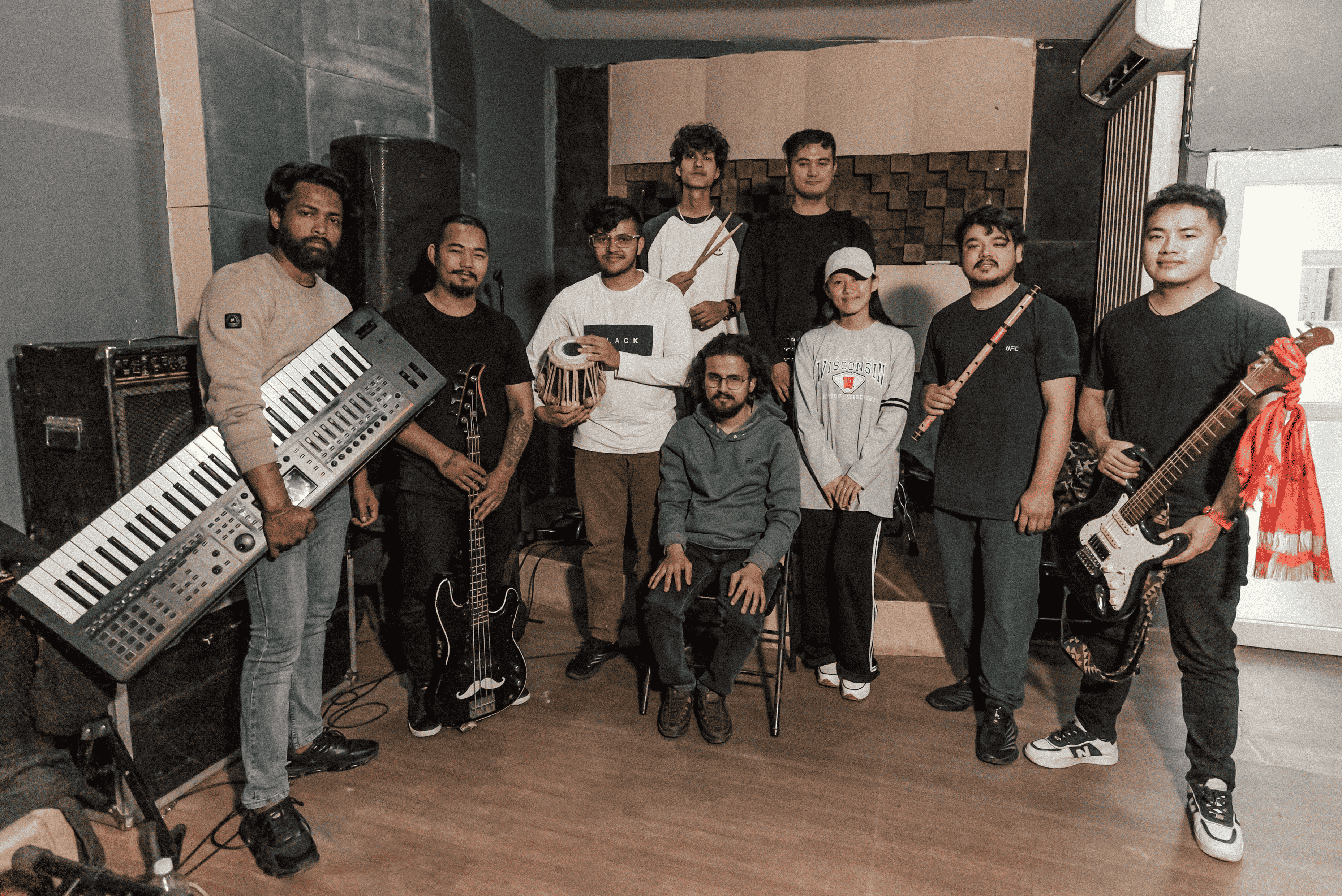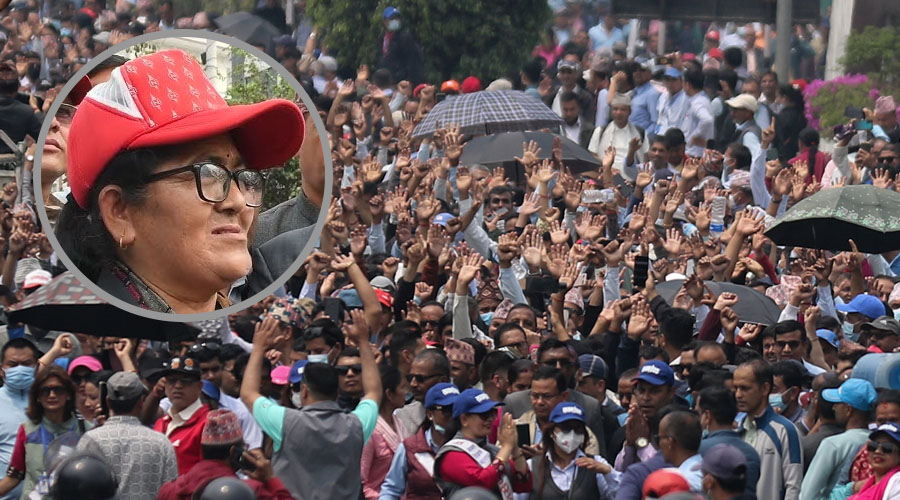
Doctors are also human. They also have a heart and sensibility,” says Dr Rajiv Jha, Senior Neurosurgeon at Bir Hospital. Doctors’ work between life and death is complex. On one hand, they have to show their professional ability, and on the other, they have to keep alive human sensibility. Jha balances both of these things.
Every day, Jha stands between life and death. He holds a person’s life in his hand. In such moments, he does not have space to become emotional.
“We are also human but due to the nature of our work, we can not be emotional. Our hands do not tremble while treating a damaged head, but this does not mean we have a stone-made heart,” he says.
He asks, “If a doctor’s handshakes, who will save lives.” So far Jha has performed over 18,000 head surgeries. “My hands never trembled even after doing the surgery on extremely damaged heads,” says Jha.
Despite his extensive experience, he still considers a new patient a new lesson. He never rushes or panics during surgery. Jha was born on February 19, 1972. He comes from an educated family background. His father was a government employee and used to travel to different places inside and outside Nepal for training.
He spent his childhood in a village. His grandfather was a farmer. There was no school near the village. His home was connected to India’s border. Many people from his village used to travel to India for education. His father also pursued an education in India.
As a government employee, his father used to get transferred to different places. He was once transferred to the Agriculture Office in Tarahara, Sunsari. Then he also went to Tarahari with his father. There was also no school nearby. One had to go to Itahari or Dharan, which were 10 km away. There was also no facility for transportation. Then his father hired a private teacher at home. Teachers used to determine qualifications, back then there used to be no examination.

He studied at home till grade 3. Afterwards, in grade 4 he was enrolled in Itahari-based Janata Secondary School. After two years his father was transferred to Janakpur. In grade 6 he was enrolled in Saraswati Secondary School and completed his School Leaving Certificate from the same school. He excelled in his studies and had a twin brother. Their father wished for one son to become a doctor and the other an engineer.
Both of them studied science. Their father evaluated both of their performance in education and saw a capacity to become a doctor in Jha and an engineer in his (Jha) brother. The father motivated Rajiv Jha and he prepared himself accordingly.
Back then there was only Tribhuvan University Teaching Hospital to study MBBS. So, one had to study MBBS either in TUTH or go to India. Only the one with strong political recommendations was used to get a scholarship.
He did not have such a kind of political backup. He started to search for scholarships in other places too as his family could not afford the MBBS education for him without the scholarship. At that time many people used to go to Bangladesh for medical education. His around 30-35 friends also went to Bangladesh. His wish was also to go to Bangladesh. The education in Bangladesh was in English language and it would be easy for him. But there was no facility of scholarship.
Another affordable option for him was Russia. So he chose Russia. For a year he had to struggle with the Russian language. However, he spent seven years in Russia and completed his MBBS. Most people while studying MBBS do not decide what they will expertise on in future. After completing MBBS, one should have to work in a different field. He started from the emergency department.
The turning point
Dr Upendra Devkota used to visit Bir Hospital twice a week. Jha also used to accompany him. The working attitude of Devkota inspired him. He started to develop an interest in neurosurgery. While working at Bir Hospital, in 2001 he got a transfer letter to the neurosurgeon department.
“While working in an emergency department I used to see that the hospital used to attend over 10 cases of surgery,” says Jha. “ Only Bir Hospital used to do surgery. There was a crisis of surgery. The patient had even died, waiting for the treatment.”
He was transferred because Dr Upendra Devkota demanded it. Gradually, Jha began enjoying working in Devkota’s team. Watching the patient overcome the comma, made him happy and inspired him to work even more. Still, he cherishes such moments.
While working in neurosurgery he was made to participate in training. The team inspired him. “To become a surgeon, one needs two years of experience as a medical officer,” says Jha. “Only after that is one qualified to take the surgeon’s examination.”
After becoming a surgeon, one must work for two years to qualify for the neurosurgery examination, he adds. It takes 10 years to become a neurosurgeon, but outside Nepal, it takes three years. Dr Devkota asked him to “Give the examination of general surgery.” He started preparing for the exam. He planned to take leave for 6-12 months. Other doctors also used to do the same.
Devkota advises Jha to study and work simultaneously instead of taking leave to study at home. He agreed to Devkota and overcame all the hurdles. Currently, Jha also shares the same formula with the students. Jha studied without taking leave for a single day and he passed the examination of surgery.
Afterwards, he worked in the neurosurgical department as a general surgeon for two years. Then he became qualified to give the examination of neurosurgeons. He took an exam and passed it.
Getting the biggest scholarship

While working as a neurosurgeon, he was awarded the biggest scholarship in the world. The USA provided him with the American Association of Neurological Surgeon Award because of which he got an opportunity to receive a training in California.
Medanta Hospital was just established in India. He started getting calls from there for a job opportunity. He also got a job opportunity in Russia. He could have worked there but he always wanted to contribute to the homeland.
“I am happy in my own country. We are responsible for making our own country,” he says.



















